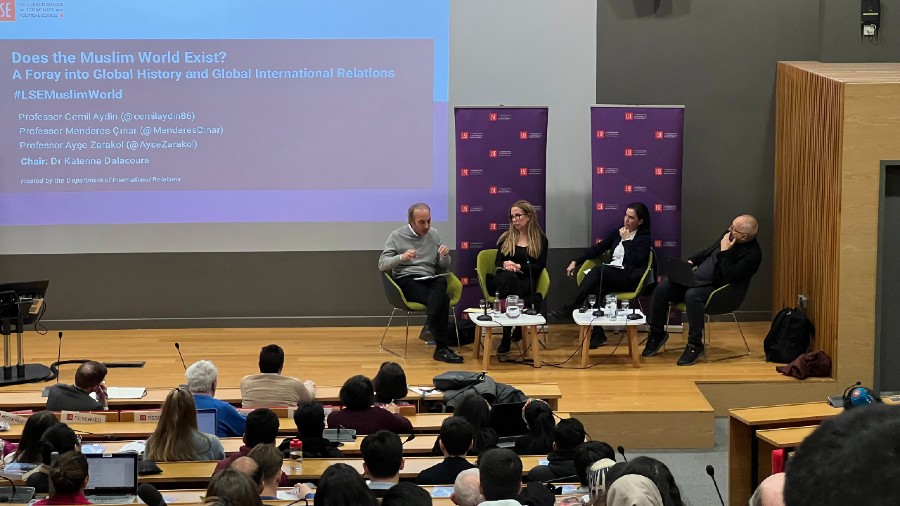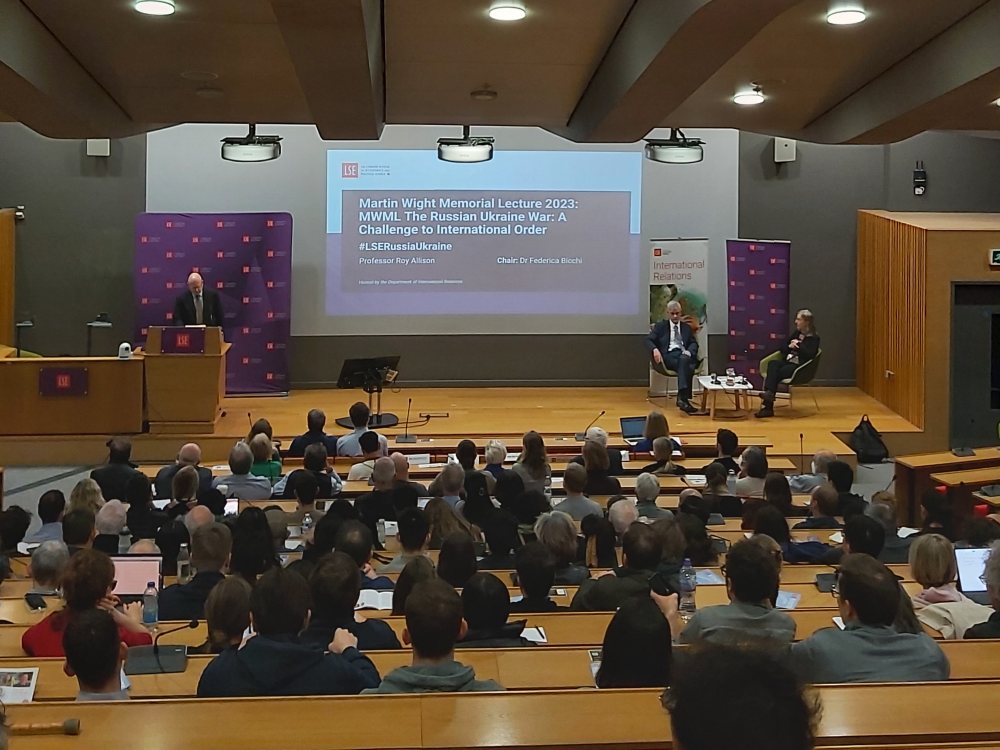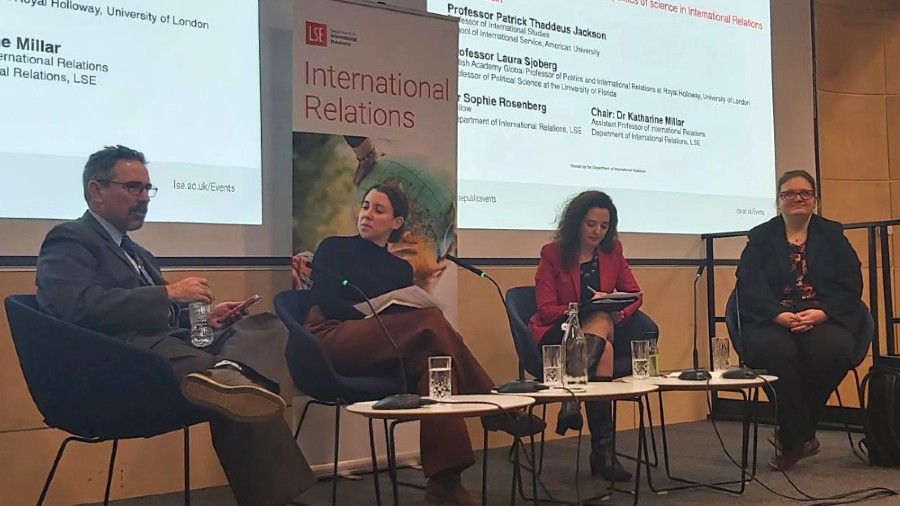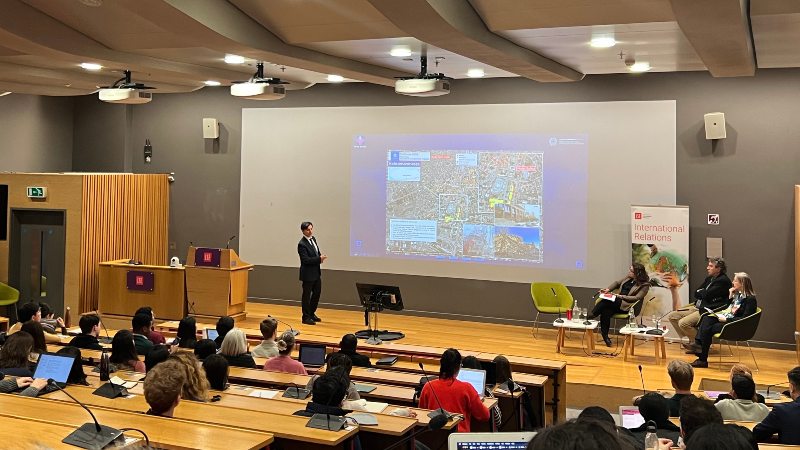On Thursday 23 March 2023, a panel of experts came together to celebrate and discuss Dr Katharine Millar’s new book, Support the Troops: Military Obligation, gender and making of the political community. The panel consisted of Kimberly Hutchings, Professor at the School of Politics and International Relations, Queen Mary, University of London, Dr Maria Rashid, Fellow in the Department of Gender studies, LSE, Dr Chris Rossdale, Lecturer at the School of Sociology, Politics, and International Studies, Bristol University, and Dr Katharine Millar, Assistant Professor in the Department of International Relations, LSE. The session was chaired by Dr Milli Lake, Associate Professor in the Department of International Relations, LSE.
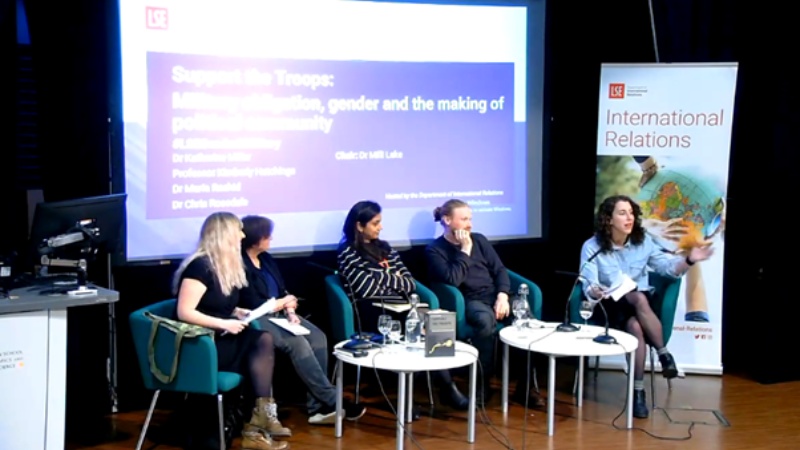
L to R: Milli Lake (Chair), Kimberly Hutchings, Maria Rashid, Chris Rossdale, Katharine Millar
The ‘support the troops’ narrative is often construed to be apolitical and neutral. However, Dr Millar’s book illustrates that this narrative is actually the product of a deeply gendered idea about liberal citizenship and militarism. Recent changes in the form of military service in liberal states have fuelled a gendered anxiety about what it means to be a good citizen, especially, though not only, for men formerly expected to participate directly in warfare. The ‘support the troops’ narrative serves to fill this gap and address any such anxieties.
While discussing the central themes and arguments presented in the book further, Dr Rossdale pointed out the salience of this narrative and its widespread acceptance even within anti-war discourses. The tacit assumption here is that the troops are vulnerable and in need of protection. This is an interesting contradiction, as noted by Professor Hutchings, where troops are simultaneously construed to be hypermasculine, but also contradictorily in need of protection and support from the general population.
Troops are simultaneously construed to be hypermasculine, but also contradictorily in need of protection and support from the general population.
According to Dr Rashid, examination of this trope is important, especially beyond the context of the UK and the US, as it helps dismantle the oriental logics of religion-based assumptions regarding other countries (like in the case of Pakistan) and instead focus on the colonial and imperial logics that underpin such narratives in those countries.
As described by Dr Millar, the book centrally uncovers gendered assumptions that often play a pertinent role in the making of political community. To mitigate anxieties about masculine militarism, supporting the troops forms a proxy of military service. This is summarised simply by Dr Millar as ‘Support is the new service.’
The ‘support the troops’ narrative is deeply embedded within gendered logics of protection and is often used to sanction state sponsored violence.
Though seemingly benign, the ‘support the troops’ narrative is deeply embedded within gendered logics of protection and is often used to sanction state sponsored violence. Additionally, the portrayal of this narrative as harmless diverts from the real and bloody consequences of collective violence for civilians abroad and provides implicit assent to liberal wars. Thus, the importance of challenging such a notion was brought out in the session, by engaging in a comprehensive discussion about the central arguments in the book.
Event report by Prerna Murarka, MSc International Relations



